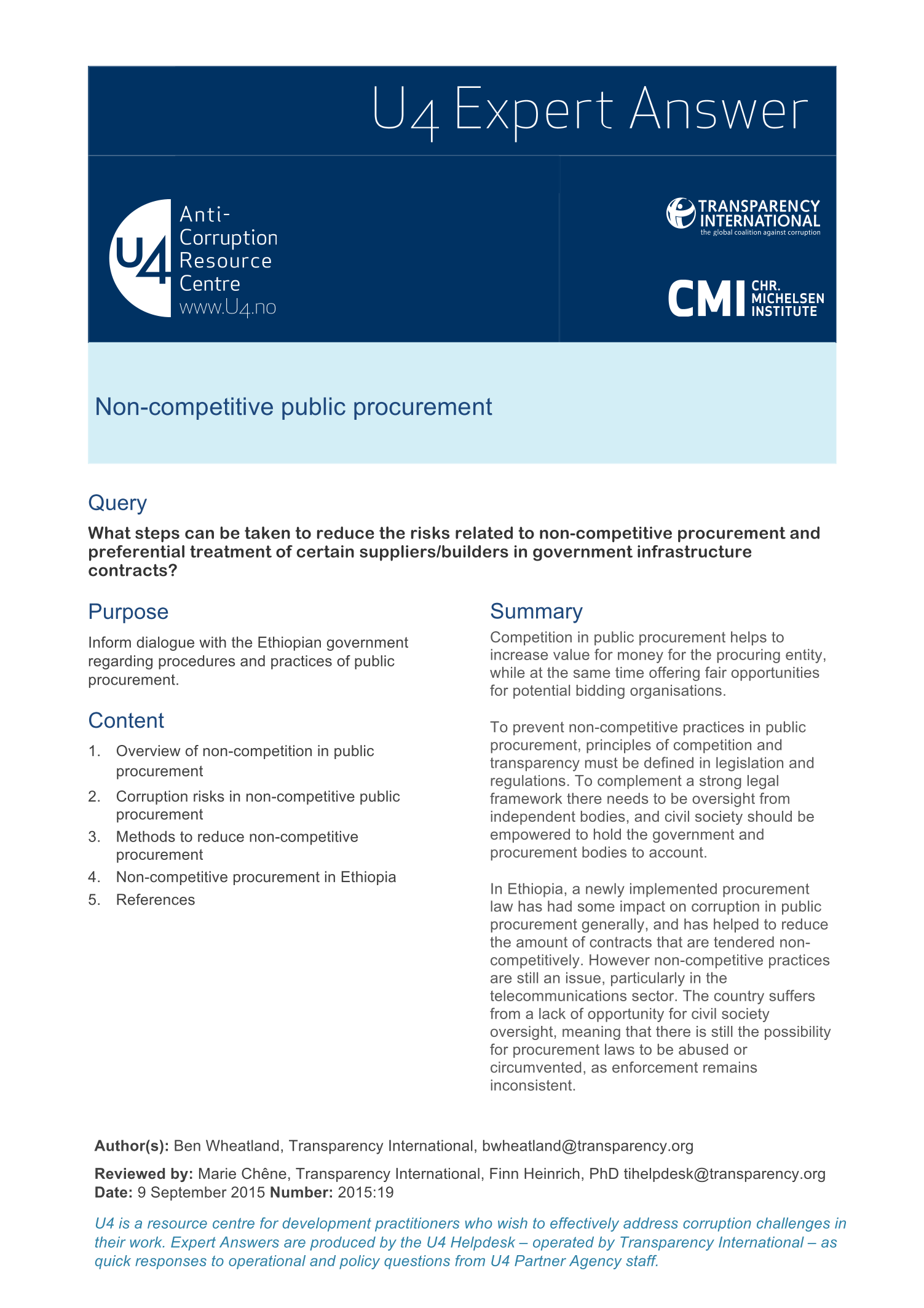U4 Helpdesk Answer
Non-competitive public procurement
Competition in public procurement helps to increase value for money for the procuring entity, while at the same time offering fair opportunities for potential bidding organisations.
To prevent non-competitive practices in public procurement, principles of competition and transparency must be defined in legislation and regulations. To complement a strong legal framework there needs to be oversight from independent bodies, and civil society should be empowered to hold the government and procurement bodies to account.
In Ethiopia, a newly implemented procurement law has had some impact on corruption in public procurement generally, and has helped to reduce the amount of contracts that are tendered non-competitively. However non-competitive practices are still an issue, particularly in the telecommunications sector. The country suffers from a lack of opportunity for civil society oversight, meaning that there is still the possibility for procurement laws to be abused or circumvented, as enforcement remains inconsistent.

Cite this publication
Wheatland, B. (2015) Non-competitive public procurement. U4 Expert Answer 2015:19
Disclaimer
All views in this text are the author(s)’, and may differ from the U4 partner agencies’ policies.
This work is licenced under a Creative Commons Attribution-NonCommercial-NoDerivatives 4.0 International licence (CC BY-NC-ND 4.0)


